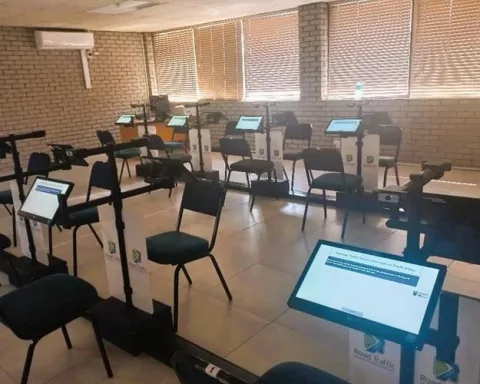Nigel Owens, a former international referee, has expressed concerns about the reliance on technology in rugby, particularly with the use of Television Match Officials (TMOs) and the Foul Play Bunker. Owens believes that the excessive use of technology is overshadowing the role of on-field referees, and calls for a revamp in the way rugby employs technology. He also highlights the need for stronger officiating in crucial parts of the game, such as the scrum and the ruck, in order to improve the overall quality of rugby.
The Need for Balanced Officiating in Rugby: Nigel Owens’ Insight on Power Dynamics and Technology
The Emerging Power of Technology in Rugby
In the complex world of rugby, as in any sport, decision-making is a critical aspect that governs the game’s direction and outcome. Yet, there’s an evolving shift in power dynamics where technology is gaining an upper hand in rugby. Nigel Owens, a notable ex-international referee, has publicly expressed his worries about this unsettling trend, highlighting an over-dependence on Television Match Officials (TMOs) and the Foul Play Bunker.
Owens, who is respected for his sharp insights, holds the view that TMOs hold an overwhelming authority, which tends to eclipse the role of on-field referees. He perceives this as a deviation that the sport should resist. His skepticism extends to the Foul Play Bunker, a system which saw frequent use during the Rugby World Cup. Despite its potential to quicken the game’s pace, it fell short in minimizing disputes or improving decision-making throughout the competition.
In Owens’ opinion, the excessive use of the bunker has chipped away the authority of on-field referees, relegating them to secondary roles. He contends that this shift necessitates a revamp in the way rugby currently employs technology.
Refereeing Rugby: Scrums, Rucks, and the Need for Stronger Officiating
However, Owens’ concerns aren’t limited to technology. His attention also turns to the scrum, a crucial part of the game, expressing discontent about its current officiating. His primary qualm centers around the incorrect method employed by scrum-halves when feeding into the scrum. He believes this problem is burgeoning, pushing the scrum-halves towards an almost ridicule of the rules.
Owens asserts that referees are ignoring these crumbling scrums, allowing play to continue without addressing the crux of the issue. He stands by the conviction that robust refereeing could restore the scrum to a fair competition.
Additionally, Owens also aims his criticism at the ruck and tackle breakdown area. He calls for rigorous officiating in these parts as well. While acknowledging the comprehensive nature of the game’s rules, he stresses the need for their effective enforcement.
Enhancing the Rugby Experience: Better Enforcement and Balanced Power
In Owens’ view, an ideal ruck involves players arriving on their feet, not falling off them. He maintains that adept officiating of the ruck could create opportunities for players to showcase their attacking skills in the midfield. This enhancement could potentially curtail dangerous clearouts around dead ruck zones.
The World Cup bore witness to numerous incidents where players were unjustly penalised, leading to disorderly pile-ups. Owens interprets these frequent episodes as a blatant violation of the rules, which could be mitigated with stricter officiating.
In summary, Owens’ critique of rugby’s current state advocates a return to the basic rules and their application. While he recognizes the advantages of integrating technology in sports, he proposes a more equitable balance of power, where on-field referees reclaim their deserved prominence. Additionally, he underscores the need to reinforce the officiating of vital game elements like the scrum and the ruck, which, he believes, could significantly enhance the overall quality of rugby. As a respected figure in rugby, Owens’ concerns and proposals are a clarion call to the game’s guardians.
1. What are Nigel Owens’ concerns about the use of technology in rugby?
Nigel Owens is concerned about the over-reliance on Television Match Officials (TMOs) and the Foul Play Bunker, which he believes overshadow the role of on-field referees and diminish their authority.
2. How does Owens propose to improve the use of technology in rugby?
Owens calls for a revamp of the way rugby employs technology to create a more equitable balance of power, where on-field referees reclaim their deserved prominence.
3. What is Nigel Owens’ criticism of the current officiating of the scrum?
Owens believes that scrum-halves are using an incorrect method when feeding into the scrum, and referees are ignoring these crumbling scrums, allowing play to continue without addressing the crux of the issue.
4. What does Owens recommend for the officiating of the ruck and tackle breakdown area?
Owens calls for rigorous officiating in the ruck and tackle breakdown area to reinforce the effective enforcement of the game’s comprehensive rules.
5. How does Owens believe the officiating of the scrum and the ruck can enhance the overall quality of rugby?
Owens believes that robust refereeing of the scrum and the ruck can restore these parts of the game to a fair competition, create opportunities for players to showcase their attacking skills in the midfield, and curtail dangerous clearouts around dead ruck zones.
6. What is Owens’ overall critique of rugby’s current state?
Owens advocates for a return to the basic rules and their application, as well as a need for stronger officiating in crucial parts of the game to improve the overall quality of rugby.












